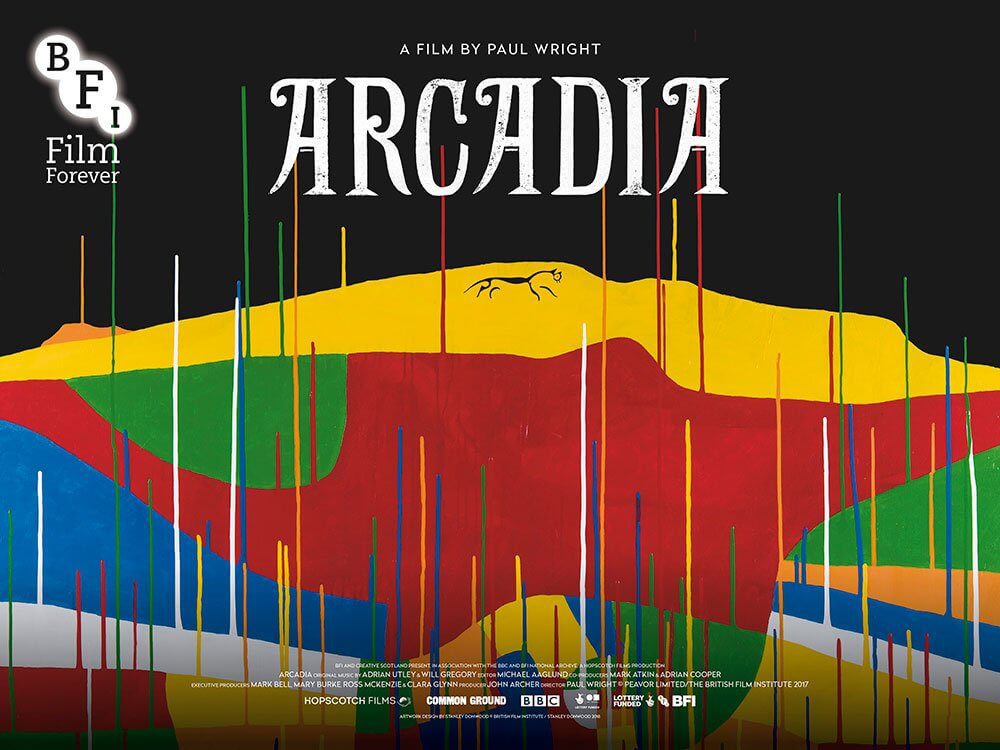
First released in 2018, the documentary Arcadia is directed by the Scots filmmaker and BAFTA award winner, Paul Wright. Drawing upon a century of footage from the British Film Institute’s rural archive – including material sourced from old TV programmes, newsreels, private cinematographers, and various clips from respected British films like Herostratus (1967) and Winstanley (1975) – Arcadia explores our changing relationship with the countryside and the different ways in which we connect with the land.
Arcadia’s soundtrack was composed by Will Gregory and Adrian Utley of Goldfrapp and Portishead respectively and tonight in Leeds the two men reconvene as part of a specially curated 9-piece band to perform their live score. They are joined by musical director and multi-instrumentalist Ross Hughes, who converted the original soundtrack for this setting, the string quartet of Emma Smith, Francesca Simmons, Zamia Jamie, and Ivan Hussey, plus vocalists Lisa Knapp and Victoria Oruwari.
“This is the Britain we have all inherited; a land of incomparable beauty.” A picture-postcard impression of our countryside first emerges on the screen through a series of bucolic images of golden wheat fields, the tilling of the soil, horse-drawn carts, thatched cottages, and post-war village pubs reflecting communal peace and inner tranquillity. Yet these early spoken words are deceptive. Arcadia does not have a narrative. It is left to the music to map out the film’s storyline. And this idyllic view of country life is soon replaced by many of the darker and more conflicting histories that can be found lying deep within our rural landscapes.
To explore these alternative accounts, the film follows a broad structure provided by the four seasons, using it as a primary means of contrasting shadows and light. These shifting moods are magnified by an incredibly powerful, most atmospheric live musical score which absorbs strong elements of folk, goth, glam rock, and rave along its way.
Adrian Utley’s guitar introduces scenes that capture some of the more gentle folk traditions and pursuits. The fluttering of Ross Hughes’ flute aligns itself with a dramatic starling murmuration. And Lisa Knapp captures the purity and free spirit of English folk singer Anne Briggs’ voice in her recreation of her songs from the original soundtrack.
But the ominous beat of Ross Hughes’s bodhran drum heralds the arrival of scenes reflecting many of the more brutal aspects of the British countryside. Disturbing visions of strange pagan rituals replete with occult weirdness, naturism, mysterious non-conformity, and predatory human behaviour captured in the graphic barbarism of fox hunting all vie for space on the screen in an unsettling and complex montage of moving images.
This graphic and frequently deeply disturbing visual experience is both complemented and further enhanced by the instinctive coherence of the accompanying music. This startling combination of sound and vision, though, does leave ample space in which the audience can engage emotionally and in so doing we are enabled to become part of this magnificent creative process.
[embedded content]
